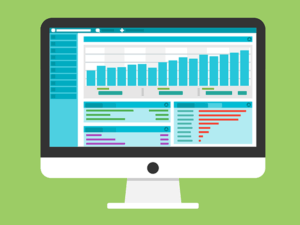Last Updated on November 4, 2020, 9:53 am ET

This is the second blog post in a three-part series on understanding the perspective of various stakeholders across the scholarly communication landscape regarding the adoption of persistent identifiers (PIDs) and machine-readable data management plans (maDMPs). The first post provided a vision for what an ecosystem of connected research outputs would bring to researchers, funders, and institutions. We heard from stakeholders on how the broad adoption of PIDs would allow impact tracking, show connections among research outputs, and enhance the research practices of developing scholars.
This post continues our coverage of these interviews with representatives from scholarly societies, research communities, funding agencies, and research libraries. We are sharing and discussing these interviews in the context of the final report and recommendations resulting from a December 2019 invitational conference convened by the Association of Research Libraries (ARL), the California Digital Library (CDL), the Association of American Universities (AAU), and the Association of Public and Land-grant Universities (APLU).
Conference Goals
In this blog post, we hear from stakeholders about their goals for the conference. While the overall goal of the conference was to explore the ways that stakeholders could implement a more connected ecosystem for research data outputs, these interviewees highlight the fact that success hinges on coordination and support among various stakeholders.
Sayeed Choudhury, associate dean for research data management, Johns Hopkins Sheridan Libraries, emphasizes the importance of a coordinated approach to the broad adoption of machine-actionable DMPs and PIDs across the scholarly communications ecosystem.
Shelley Stall, senior director, data leadership program, American Geophysical Union, describes how these coordinated approaches should be piloted within universities and involve domain specialists as well as data specialists.
This coordination would also be key for data repositories and publishers, according to Kerstin Lehnert, Doherty Senior Research Scientist, Columbia University. Currently there is little coordination or notification between data repositories and publishers on when articles are published or not published and/or when related data is made available.
All of the pre-conference interviews are available on the ARL YouTube channel.
Natalie Meyers is interim head of the Navari Family Center for Digital Scholarship and e-research librarian for University of Notre Dame, Judy Ruttenberg is senior director of scholarship and policy for ARL, and Cynthia Hudson-Vitale is head of Research Informatics and Publishing for Penn State University Libraries.



